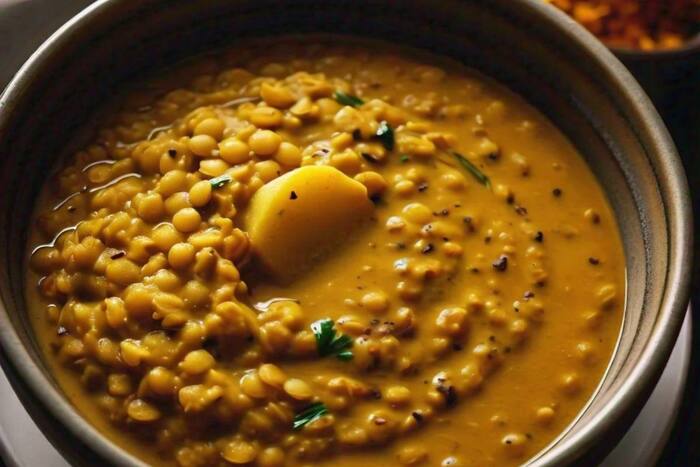
By clicking “Accept All Cookies”, you agree to the storing of cookies on your device to enhance site navigation, analyze site usage, and assist in our marketing efforts Cookies Policy.

Yellow dal, often referred to as yellow split peas or yellow lentils, is a staple in many cuisines and offers a range of health benefits that contribute to overall well-being. Here’s a comprehensive look at its advantages:
Yellow dal is packed with essential nutrients, including protein, fiber, vitamins (such as B vitamins), and minerals (such as iron, magnesium, and potassium). These nutrients support various bodily functions and contribute to overall health.
As a plant-based protein source, yellow dal is an excellent option for vegetarians and vegans. Protein is crucial for muscle repair, growth, and overall cellular function. It also helps in maintaining a healthy immune system.
The high fiber content in yellow dal promotes healthy digestion by aiding in regular bowel movements and preventing constipation. Fiber also supports a healthy gut microbiome, which is essential for overall digestive health.
The complex carbohydrates and fiber in yellow dal help to stabilize blood sugar levels by slowing the absorption of sugars. This can be particularly beneficial for individuals with diabetes or those looking to manage their blood sugar levels.
Yellow dal contains potassium, which helps regulate blood pressure, and fiber, which can lower cholesterol levels. Both of these factors contribute to a healthy cardiovascular system and reduce the risk of heart disease.
The high fiber and protein content of yellow dal can help you feel fuller for longer periods, reducing overall calorie intake and supporting weight management efforts.
The vitamins and minerals found in yellow dal, including iron and zinc, play important roles in maintaining a strong immune system. Adequate iron levels are essential for preventing anemia, while zinc supports immune response and healing.
The antioxidants and vitamins in yellow dal, such as vitamin C and various B vitamins, help maintain healthy skin by supporting collagen production and protecting against oxidative damage.
Yellow dal is a good source of magnesium and phosphorus, both of which are important for maintaining strong bones and preventing conditions like osteoporosis.
The B vitamins present in yellow dal, including folate and thiamine, play crucial roles in energy metabolism, helping the body convert food into usable energy and supporting overall metabolic function.
Incorporating yellow dal into your diet can offer a range of health benefits, from improving digestion and regulating blood sugar levels to supporting heart health and boosting immune function. Its nutrient density makes it a valuable addition to a balanced and varied diet.
For breaking news and live news updates, like us on Facebook or follow us on Twitter and Instagram. Read more on Latest Dishes News on India.com.